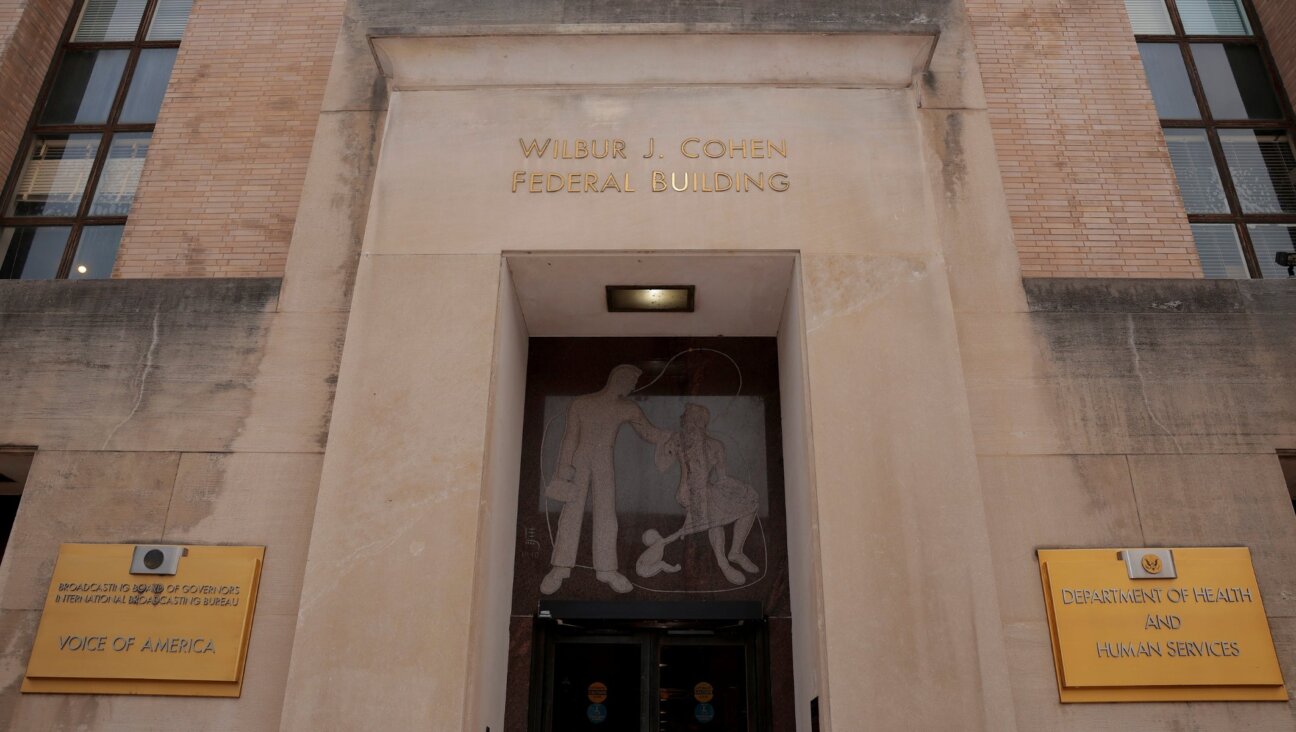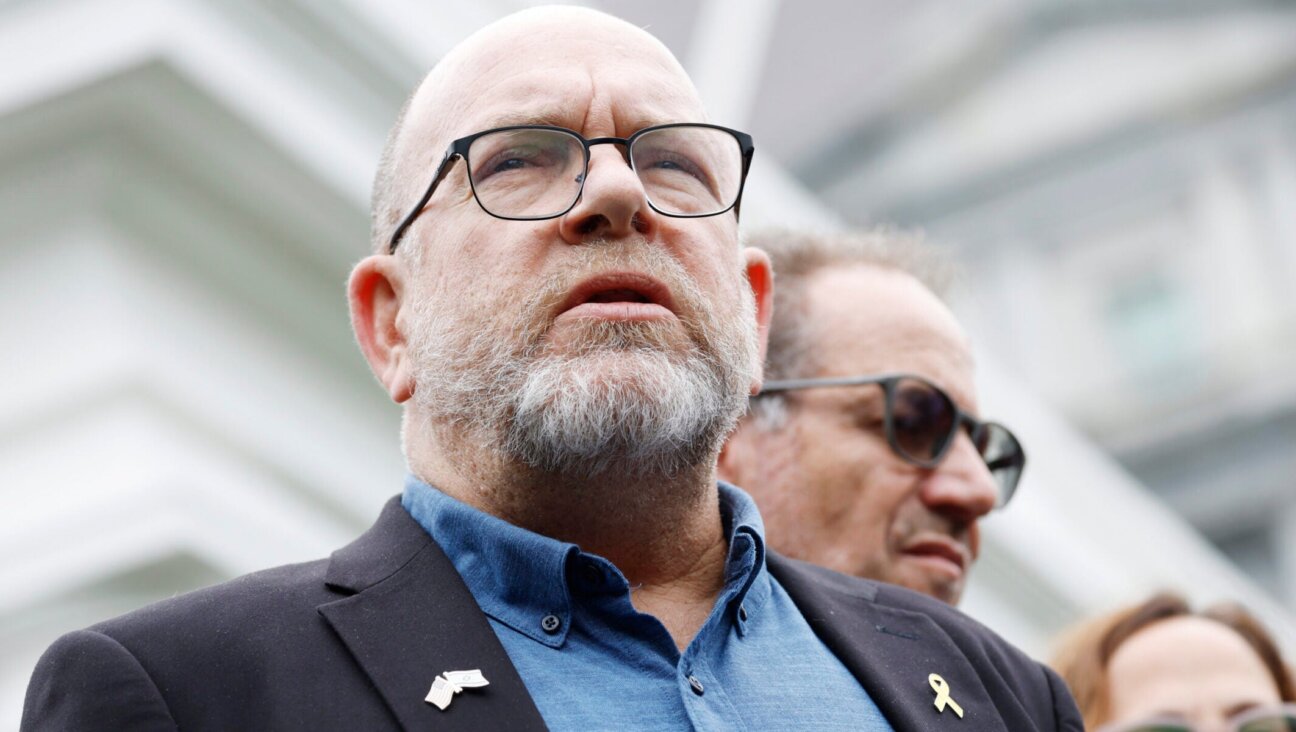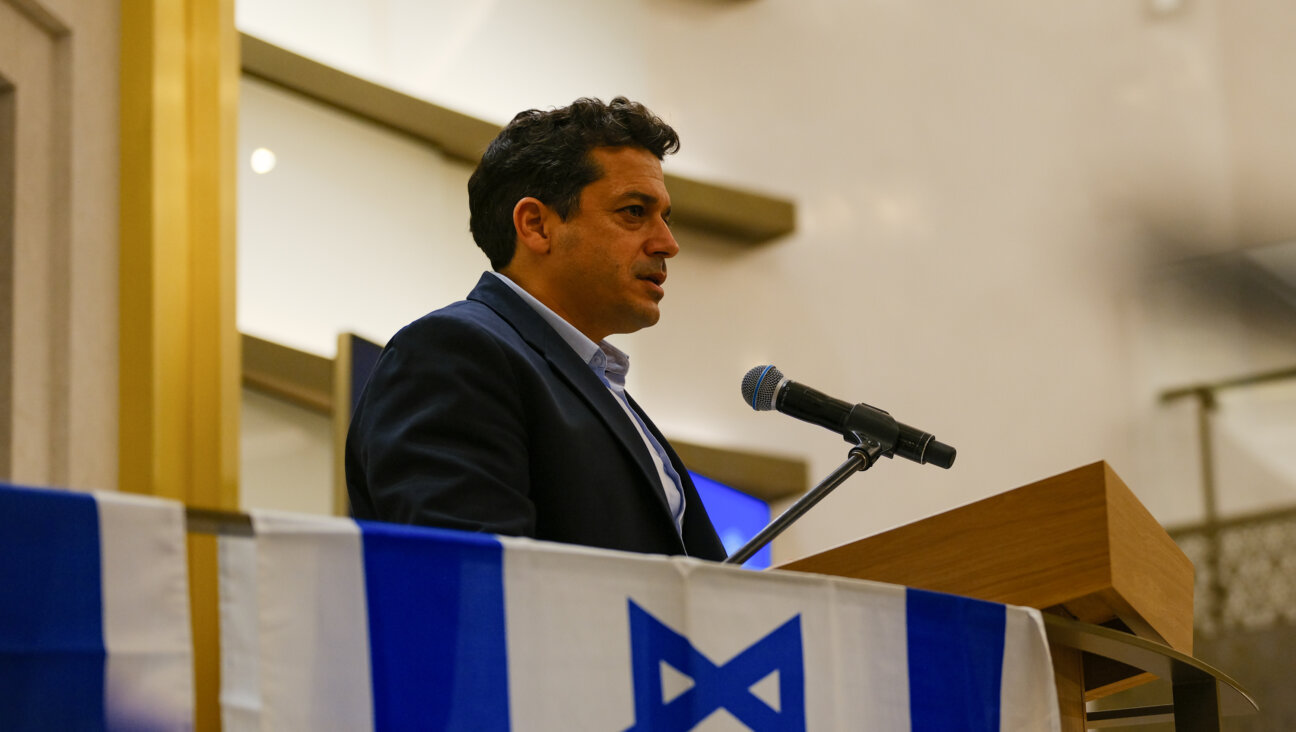On a Mission, From Hospital Hallways to Capitol Hill
At 79 years old, and a little over 5 feet tall, Myra Rosenbloom does not look like someone fighting the health-care establishment. But since her husband died 11 years ago, she has been on a divine mission to do just that.
Jack Rosenbloom passed away in the critical care unit of a hospital where no doctor was on duty. He had a relapse of the heart attack that brought him into the hospital, and when the nurse called a “code blue,” summoning any doctor in the area, the first physician did not come until over an hour later, when Jack was beyond help.
Rosenbloom was in the hospital at the time of her husband’s death on a Saturday because she does not drive on the Sabbath, and so was unable to go home after her visit on Friday. The timing of his death was no coincidence, she believes — it was a divine message.
“It was beshert,” she said, using the Yiddish word for fated. “If I hadn’t been there on Shabbes I would have never known how he died. They would have covered it up.”
With research help from a legal intern she hired, Rosenbloom quickly learned that it is neither unusual nor illegal for hospitals to operate without any physicians on premises for in-patients; no federal laws or regulations in any state require hospitals to have a non-emergency room doctor present around the clock.
Rosenbloom set out to change the laws.
The Physician Availability Act — a bill she helped create — was introduced in the U.S. House of Representatives this summer by her local congressman, Democrat Pete Visclosky of Indiana. When introducing the legislation, Visclosky told Rosenbloom’s story and called her “a courageous woman who has faced tragedy with resolve to better the lives of others.”
As when Visclosky introduced similar bills in 1997, 1999, and 2001 at Rosenbloom’s urging, the bill will probably not even reach committee, much less a vote, but it will not be for a lack of effort by Rosenbloom.
“I’m a tough old bird,” said Rosenbloom. “I just won’t take no for an answer.”
She stays up until 4 a.m. many nights, writing letters on the subject to newspapers and lawmakers. “If you keep badgering them, they’ll remember you,” she said. “I’m basically just a noodge.”
She has never diverged much from this strategy.
When she travels to lobby for the bill in state capitals or Washington, D.C., she walks up and down the train aisles telling people about the corruptions of the hospital system. “I figure what can the passengers do,” she said, “jump out the window?”
A few years ago she started her own weekly radio show to tell people about the Physician Availability Act.
And last year she ran for the Indiana House of Representatives on the Republican ticket, though the normal party issues were of little concern to her. A local newspaper’s summary of her electoral loss — where she still won a rather astonishing 33% of the vote in the general election — was brief: “Rosenbloom, a 79-year-old community activist from Munster, waged her campaign largely on one issue: requiring hospitals with more than 100 beds to have a non-emergency room physician on duty 24 hours a day.”
Rosenbloom’s message has been clear and consistent throughout all her efforts. “It’s a hole in the system,” she said. “Everyone takes for granted that a doctor is there, but it’s the opposite. There is an emergency room doctor there, but they are not required to deal with in-patients, and thousands of people lose their lives each year as a result.”
Along with her efforts at the federal level, Rosenbloom has vigorously pushed the bill at the state level, in Indiana, Illinois and Michigan.
When the bill was first introduced in the Indiana House of Representatives, she set up camp for six nights on a bench in the lobby of the state house. And she has been fearless in facing down legislators who have put up opposition to her bill. When she got a personal meeting with Governor Frank O’Bannon of Indiana, she told him she would get him voted out of office with her endorsements from B’nai Brith, Hadassah and the Indiana chapter of the Disabled Veterans of America, among others.
“I’m not afraid of any of these yo-yos,” she said. “I’m only afraid of God.”
This fearlessness, though, has not netted a great deal of success. Indiana did eventually pass a watered-down version of the bill, but it was amended to remove the key provisions Rosenbloom advocates. Right now she has the most hope for a bid in Illinois, where it was introduced to a Democratic house that she thinks will look favorably on the bill.
In Washington, the pending federal bill, H.R. 2389, was referred to the Energy and Commerce Committee’s subcommittee on health, but no action has been taken, and none appears in the works.
In the past, the American Hospital Association has said that the Physician Availability Act looks good on the surface but is too expensive in practice, with an estimated cost of more than $1,000 a day per hospital.
Rosenbloom fears that the “big money” from the hospital lobby will be used to stop her bill in Congress and the statehouses. “The legislators mean very little,” she said, “and the lobbyists are running this country. That’s why I have to use the media in every way I can.”
Rosenbloom, who once ran a kosher catering business in the Chicago area with her husband, now treats her crusade like a full-time job. “I don’t sleep much, because I know there is so much I have to do,” Rosenbloom said. When she wakes up every morning at 8 a.m. she asks, “Now, God, what should I do today? Who should I call?”
After suffering so many defeats, she takes a sober view of her chances to affect change, noting that the bills will likely “fall by the wayside” after she passes away. Yet she soldiers on.
“When you believe in something,” she said, “you have to fight until the day you die.”
“I’m almost 80 years old,” she said. “God gave Moses a mission when he was 80, and he wandered for 40 years, so maybe there hope for me yet.”















